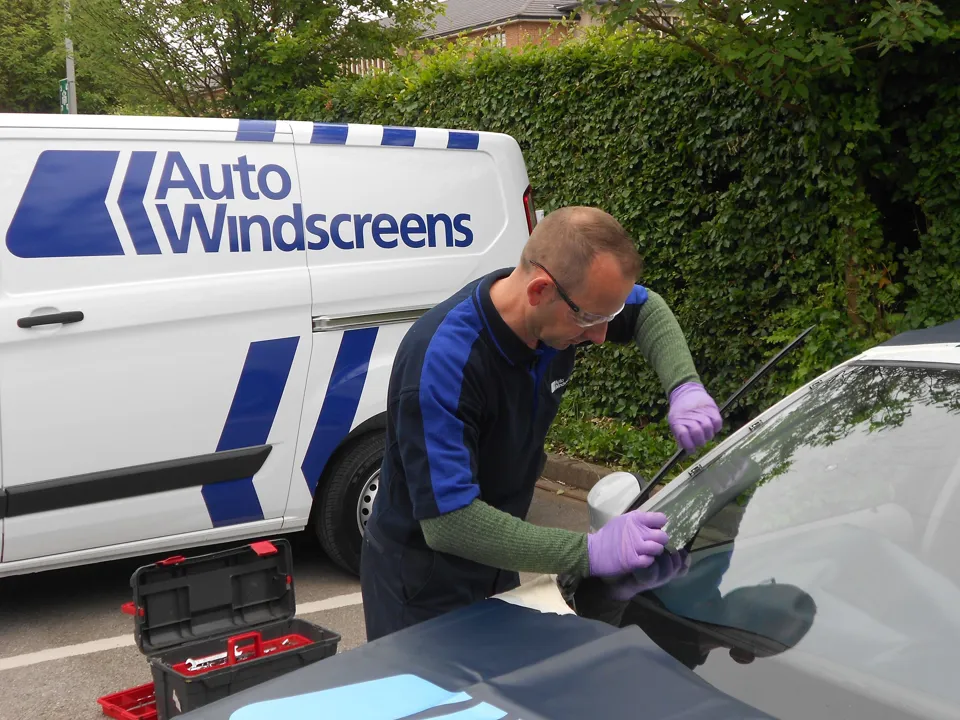Auto Windscreens is gunning for fleet growth under the leadership of newly appointed managing director Rupert Armitage, with aspirations to become the sector’s number one provider.
That would mark an incredible transformation for the business following its liquidation just five years ago, but Armitage told Fleet News he’s is up for the challenge having spent almost 12 months conducting a root and branch review ahead of his confirmation in the top job. However, he declined to reveal his timescales for growth.
Armitage joined the Chesterfield-based business after it had just acquired AA AutoWindshields and closed 33 fitting centres as the company set about transforming itself into a mobile-only provider.
It had also appointed Pilkington as its leading glass supplier having previously used a number of providers.
He was appointed by Auto Windscreens’ parent company, Markerstudy Group, to “assess the whole Auto Windscreens” business in October last year, before becoming acting managing director in January 2016.
The appointment followed the departure of Chris Thornton, who had overseen the AA AutoWindshields acquisition, and Phil Kemp, who had been promoted from operations director to MD, also left.
Under Armitage’s stewardship, the integration of AA AutoWindshields into the Auto Windscreens business has been completed and the company has performed a U-turn in terms of its mobile-only strategy.
Auto Windscreens, which presently employs 312 technicians, has split the UK into 14 areas, with each having a regional deployment centre and a number of fitting hubs. Additionally, the company has a 300-strong fleet of mobile units. It expects to have 30 deployment centres by the end of 2016 with the possibility of 60 sites or more by an unspecified future date.
Armitage said: “The old centres were large and didn’t meet our requirements from a size or cost perspective. The new solution with area deployment centres that also accommodate technicians and support our mobile units and the complementary fitting hubs give options to our customers. Not all customers want work carried out on their driveway, company car park or at the roadside.
“The locations also provide technicians with a suitable environment to work on more complex windscreens, as we see an increasing number of technology-packed vehicles entering the automotive market.”
In addition, Auto Windscreens introduced a rapid response scooter service in London that sees technicians undertake windscreen chip repairs and fit in-vehicle cameras. It is expected to be rolled out in other major conurbations.
The majority of Auto Windscreens work is insurance-related with fleet accounting for “more than 20% but less than 40% of all jobs”, according to Armitage.
However, following a restructuring of the fleet team, Armitage is confident that the volume of corporate work will increase.
He said: “Fleet is a specialist area both in terms of the vehicles operated and in keeping downtime to a minimum. That’s why we have introduced a new regime that sees all fleet customer calls received directly by the fleet team rather than passing through our group call centre.”
With four major operators in the automotive glazing sector and numerous small local operators, Armitage says future growth could come through further acquisitions as well as via the organic route.
He explained: “Automotive glazing is becoming more specialised through the technical nature of glass and many smaller businesses may not have the skillset, the ability to train staff or to invest so I think industry consolidation will occur.”
Auto Windscreens has also opened a Training and Innovation Academy in Chesterfield, which serves as a centre of excellence for vehicle glass repair technicians.
Armitage concluded: “There are exciting times ahead and that’s the main reason that I accepted the role. It was not what I was originally taken on to do, but I’ve been enthused and excited by the last nine months and I’m even more excited about the future and am eager to see where we can take Auto Windscreens in 2017 and beyond.”


















Matt Cowan - 27/10/2016 16:43
Shame Rupert isn't a very nice person. This is him commenting in reply to a customer on Auto Windscreens' very own Facebook page. He deleted the comment later without an apology to the customer at all. http://i66.tinypic.com/2qbys1u.png